Ever wondered why more and more people are swapping screen time for green time? Allotments are the answer!
From the picturesque coastlines of Fife to the bustling streets of Dundee, people are discovering the joy of growing their own fresh produce, cultivating colourful flowers and fostering a sense of camaraderie with fellow gardeners.
The Harvies’ allotment adventure: Growing community and cultivating joy in Cupar
In the picturesque town of Cupar, the Harvie family has found more than just a patch of land; they’ve discovered a thriving community and a new way of life.
For Louise and Calum Harvie, both 49, their allotment has become a place of joy, growth and connection.
Louise, an English teacher at Bell Baxter High School, and Calum, a former music journalist who works with Scouts Scotland, have always harboured a passion for gardening.
Gardening since about 2001 and keen to grow vegetables, they were on the allotment waiting list for 10 years – falling off the list a few times. Giving up on the idea, they decided to convert part of their front garden into an allotment instead.
But fate had other plans. “One day, Calum got the call – an allotment had become available, and we decided we’d be stupid to pass up the chance,” Louise recalls. And so, 18 months ago, they became the proud holders of plot number 22 at the Elmwood College Allotments.
The occasion even inspired one of Louise’s pupils to make her a special ‘plot 22’ sign.
What do they enjoy most about their allotment?
The allure of the allotment for the Harvies is multifaceted. “It was more space,” Calum says. “We wanted to grow a bigger range of things than we could at home. At the allotment, we can grow vegetables that don’t require daily care, relying on the rain for watering.”
Louise adds: “We also bought into the idea of having an allotment and getting to know the other people. It’s like the community you see on TV, though some are more communicative than others.”
Despite the communal aspect, the allotment never feels overcrowded.
Gardening styles at the allotments vary widely, and the Harvies have embraced a method that suits their lifestyle. They’ve tried to adopt a “no-dig approach” explains Calum, a vegan who makes his own compost. They treat the soil with new compost now and then rather than digging things up. “It’s not traditional, but it works for us,” he says.
Louise agrees, appreciating the flexibility it offers. “The lady up at the top, Norma, says everyone does it their own way! Some people might frown on not using all the space, but for us, it makes it much more manageable.”
Their plot is a cornucopia of vegetables and fruits: potatoes, carrots, squashes, lettuce, beetroot, leeks, celery, chives and various fruit bushes. Not to mention their “triffid” rhubarb patch, a source of pride and produce.
Does the whole family get involved?
With two teenage children, Adam and Beth, who both study at Bell Baxter High School, the allotment also serves as a family activity. “The kids come down and at least watch us do things,” Calum says with a chuckle. “Adam comes down and drinks juice.”
Gardening is a family tradition for Louise, who grew up in Kirkcaldy. Her Polish paratrooper grandfather, Stan Kennedy, who settled in Fife after the Second World War, was an avid gardener. “He grew beetroot, dill and kohlrabi, which we had last year. Everyone asked what it was – this alien-looking thing,” she reminisces.
For Calum, who grew up in Alva, his gardening roots are less storied. But his dad has been inspired by his enthusiasm. “My mum and dad had grass and bushes, occasionally growing potatoes. Coinciding with dad’s retirement, he started up again, inspired by our efforts.”
Paying just £40 per year for ‘rent’, the Harvies’ experience highlights the benefits of local allotments. But with many people on long waiting lists, Calum thinks there should be more – especially when many modern houses have smaller gardens.
Louise concurs, noting the traditional appeal of allotments, especially in cities. “It’s amazing what you can grow.”
Allotment life of Lynn Nealon: Artistry, nature and community in Dundee
Across the water in Dundee, Lynn Nealon, 72, has found more than just a green sanctuary at City Road Allotments.
It’s a place to blend artistry, nature, peace and community, reflecting her lifelong passion for creation and growth.
Originally from Edinburgh, Lynn moved to Dundee at 18 to study drawing and painting at Duncan of Jordanstone College of Art and Design – and she never left.
Now, with over two decades as an allotment holder, and as a member of the committee, she has cultivated a deep connection to both the land and the community around her.
Lynn’s journey to the allotments began with a touch of nostalgia and a yearning for something new. “I remember my dad growing fruit and trying to get us to mow the lawn,” she recalls.
Despite these early memories, gardening wasn’t a significant part of her life until 2003, when she decided to embrace the challenge of growing her own vegetables. “I wasn’t on a waiting list for long. In those days, it was mostly elderly gentlemen here. Very few ladies, as women weren’t allowed allotments until 1976 or something.”
City Road allotment has become a ‘canvas of creativity’ for the Dundee-trained artist
What drew Lynn to the allotments was a combination of outdoor work, the challenge of growing produce, and the tranquil environment.
“I live in the Logie scheme, just an eight-minute walk away,” she says. “I loved the view from the Law, but it was too far. I knew I wouldn’t go as often. So I put my name down here, got a phone call, and got my first plot near the gate. It was too busy there, so I moved to my current, more secluded spot.”
Lynn’s allotment has become a canvas for her creativity. As an artist who studied drawing and painting, she sees parallels between her gardening and artistic endeavours. Art influences how she grows things.
This connection to her artistic roots is also evident in her enjoyment of the physical aspects of gardening. “Getting paint under your fingernails as an artist and getting soil under your fingernails as a gardener are quite similar,” she laughs.
“I like creating things. From childhood, building treehouses and dens, there’s part of that in it for me.”
Attracted by peacefulness of allotment life – but climate change is taking toll
Lynn’s allotment is a source of both sustenance and satisfaction. She grows peas, courgettes, tatties and onions. “Basics really, nothing exotic,” she says. “I can eat what I get from the allotment, and it always tastes much better!”
But she acknowledges the challenges. “Having an allotment waxes and wanes,” she adds. “Sometimes you get a bit scunnered because you’ve got to do the same things over and over. But what you put in, you get back, which is good.”
The peacefulness of the allotment is a major draw for Lynn. But weather and climate change have become significant factors in recent years. This year in particular has been a “real challenge” with the weather, she says.
“Everything has been really strange with temperatures going up and down. There’s definitely less bees and butterflies. I’ve noticed the climate changing over the last 20 years, accelerating in the last five. More intense rain, odd cold spells, and seasons seem to be a month behind.”
Despite these challenges, Lynn’s allotment is thriving with beans, a fig tree, celeriac, courgettes, peas, tatties, and even a Blue Hubbard squash. “Last year, I had a monster squash I had to cut up with a saw! It felt like I was butchering something,” she laughs.
“It’s like Little Shop of Horrors sometimes. You don’t know how it’s going to go, but that’s what I like about it.”
Lynn’s joy in gardening extends to her family. “I recently did it with my granddaughter,” she smiles. “We ate an apple, planted the seed, and it sprouted. Now it’s growing, and she loves it.”
This blend of wonder and patience reflects her lifelong amazement at nature. “Still, 21 years later, when I sow seeds, I think, ‘That’s incredible’. It’s something I’ll never tire of!”
The blossoming journey of Avril Smith: Cultivating life and community in Dundee
On the other side of City Road allotments, bordering the edge of City Road itself, Dundee born and bred allotment holder Avril Smith explains how her journey began with a deeply personal connection.
The St Mary’s-raised 64-year-old, who lives in Dryburgh, inherited the allotment from her late husband, Davie, who had tended it for eight years before passing it on to her.
“Davie never had any hobbies,” Avril reminisces. “So we decided to get an allotment to get him out of the house and moving a wee bit. It was a sociable thing as well.”
Although Davie has been gone for four years, his spirit and the legacy of their shared labour live on in the lush, productive plot that Avril now lovingly tends.
Balancing her part-time job in a care home laundry and her duties as a grandmother to three, Avril finds solace and joy in her 200 square metre plot which she visits “at least three times a week when it’s not raining”.
Avril’s allotment is a colourful tapestry of life, both plant and human. “We have vegetables and flowers here,” she says, pointing out the kale, broccoli, raspberries, tatties, corn, courgettes and pumpkins.
“We used to have a pond, with frogs, but it was a bit dangerous. We got rid of it so I could pick the cherry tree.”
The plot is also adorned with flowers, making it a stopping point for passers-by. “People always stop at my bit and have a conversation. It’s one of those ones where everyone stops to catch their breath.”
Community spirit is important amongst allotment holders
The social aspect of the allotments is significant for Avril. There’s a great community spirit, she notes, highlighting how fellow allotment holders support each other.
It’s a point picked up by former Courier gardening columnist John Stoa, who’s been a City Road allotment holder for 20 years. He fondly recalls: “When Avril’s husband was building the shed, I advised him to get some slabs. We put the word out and got enough to do the whole lot.”
Despite the sense of community, maintaining an allotment is not without its challenges. Avril battles weeds constantly. There’s “bugs and beasties”. And the weather also poses difficulties, with the changing climate affecting crop yields. “This year has been strange. The weather’s been a real challenge.”
Avril’s allotment is not just a place of work but also a symbol of sustainability and healthy living. “We’re not spending anything on plastics. That’s important for me,” she says. “And it always tastes better when you grow your own.” This ethos extends to her research on healthy eating, guiding her choices in what she plants and harvests.
The City Road Allotments are a blend of old and new, with a mix of generations tending to their plots. A lot of the time it’s the older generation who bring the grandkids or kids in.
The allotments also offer a space for fitness, weight loss and learning about growing one’s own food. It’s a place where people like Avril, who have lived their lives in the city, can find a slice of rural peace and community spirit.
An open day is being held at the City Road Allotments from 11am until 3pm on August 3. All are welcome.
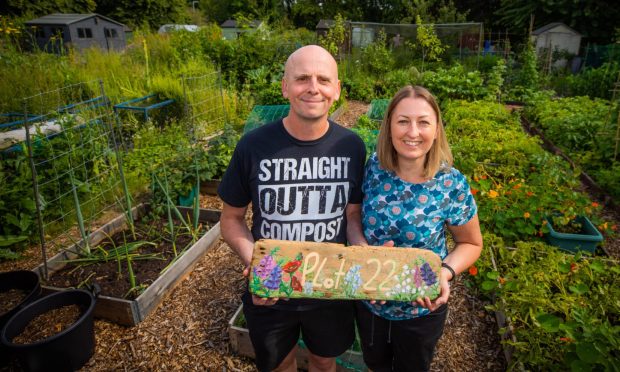
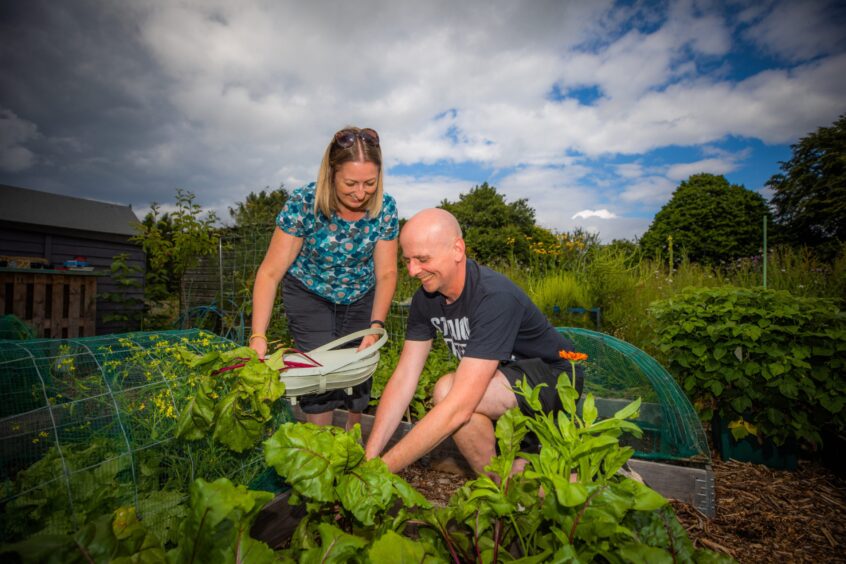
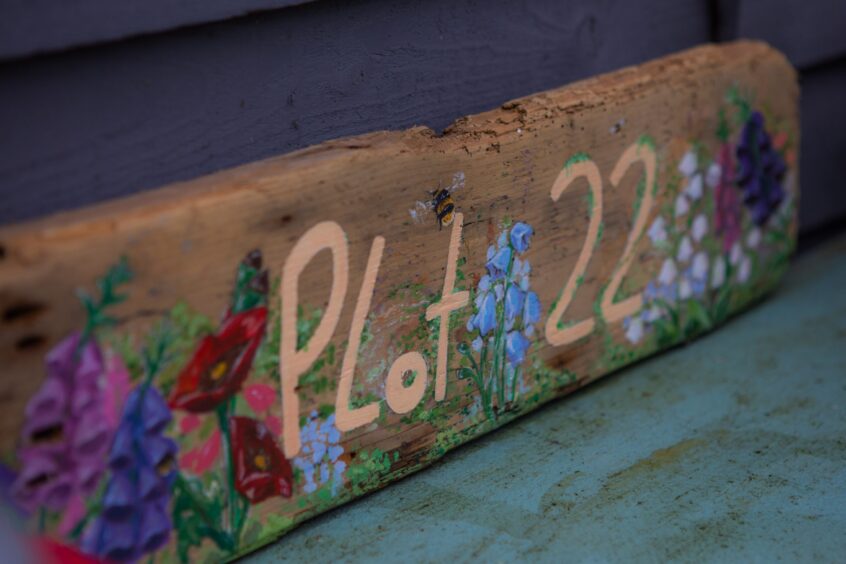
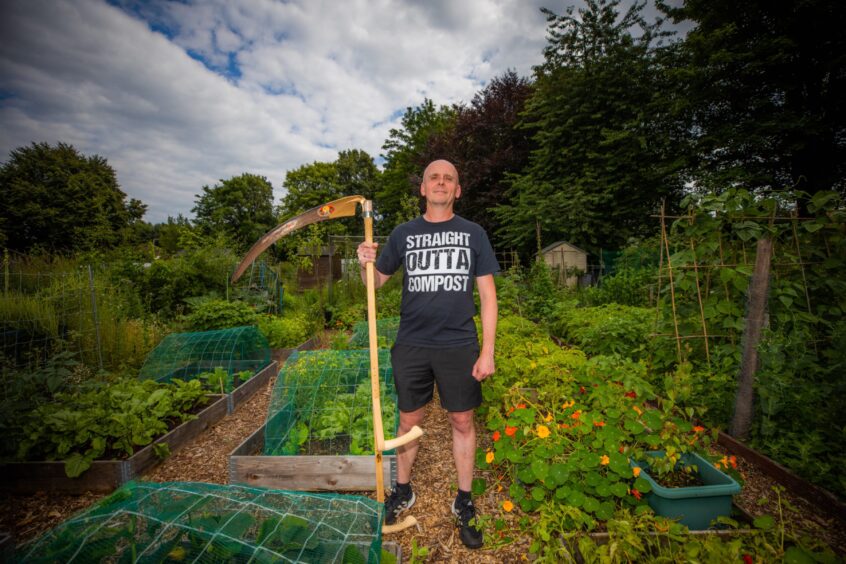
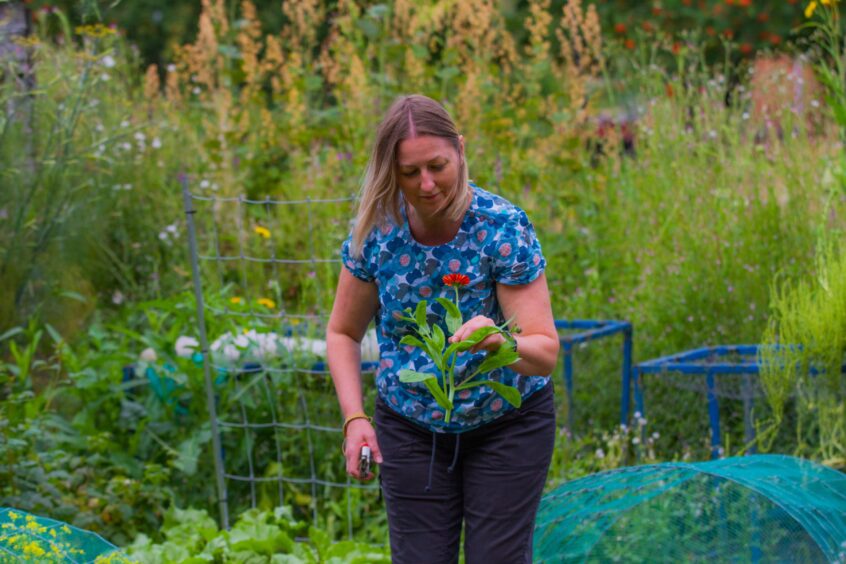
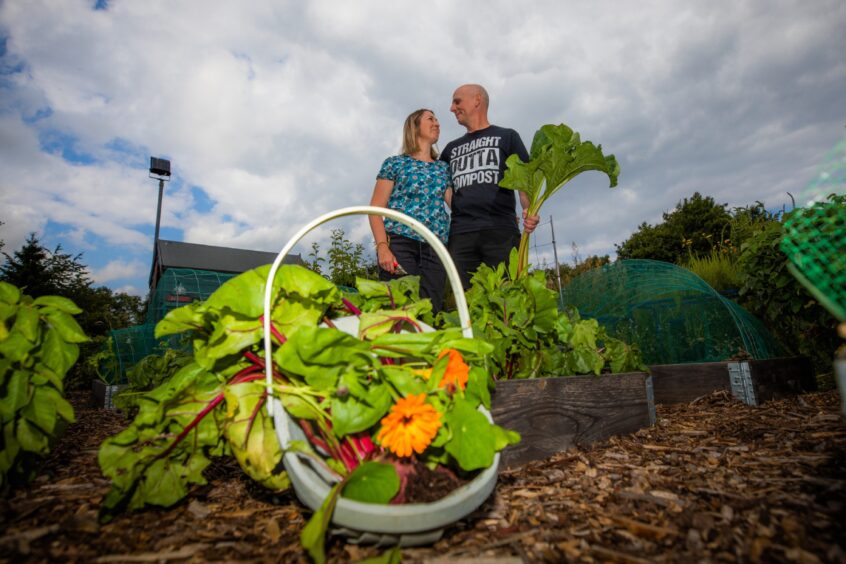
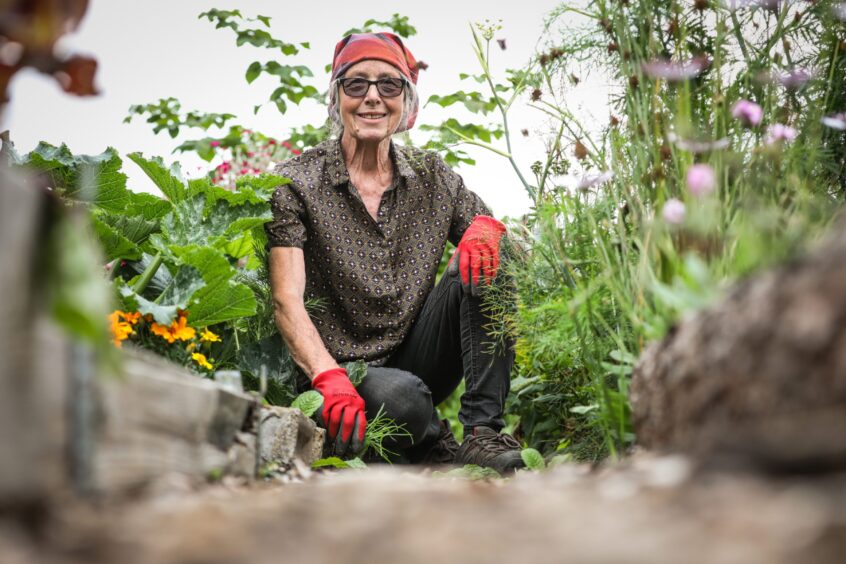
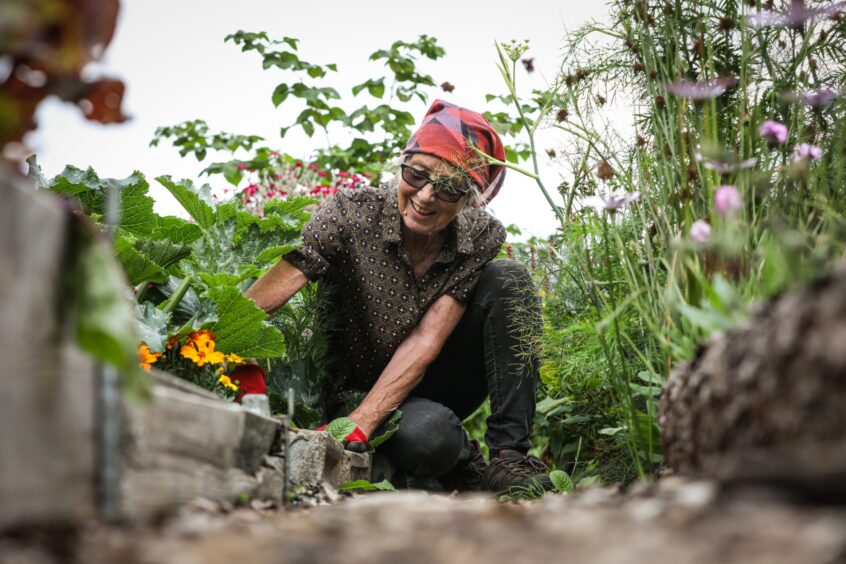
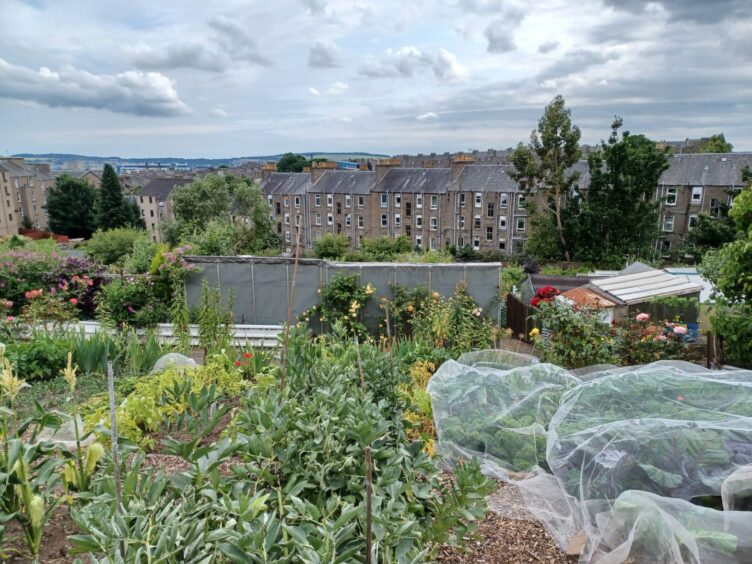
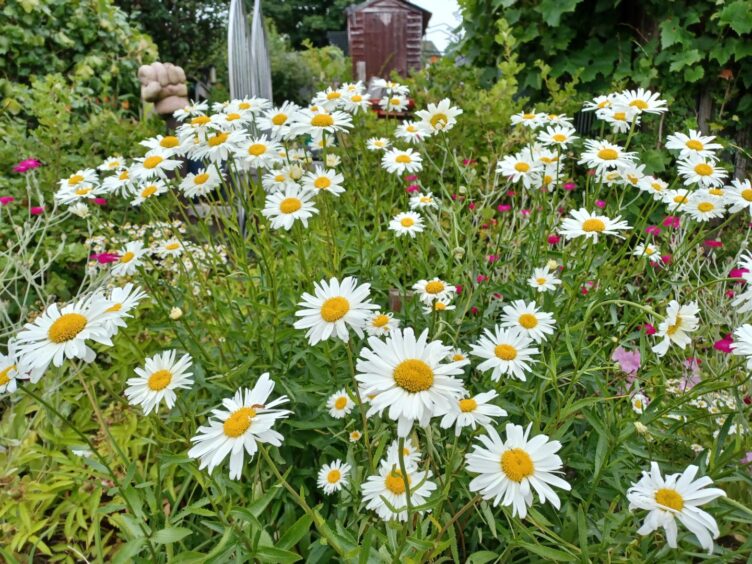
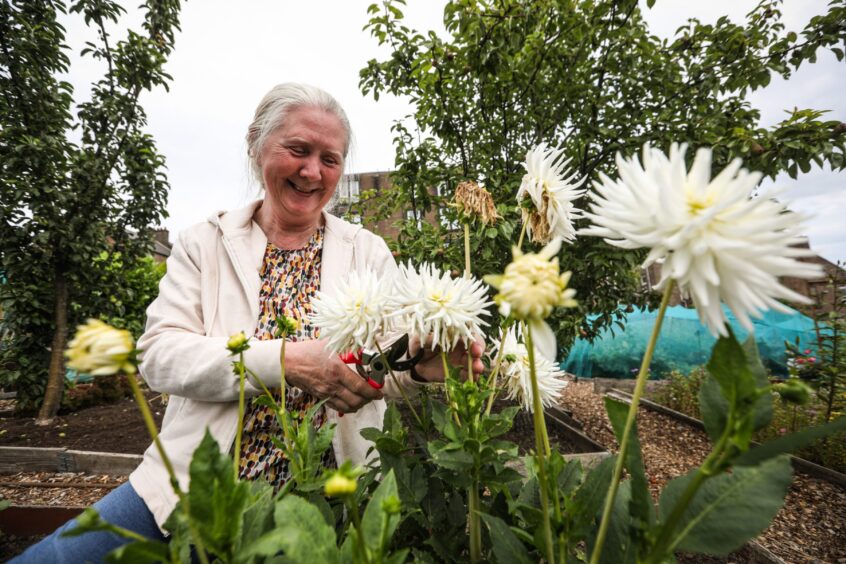
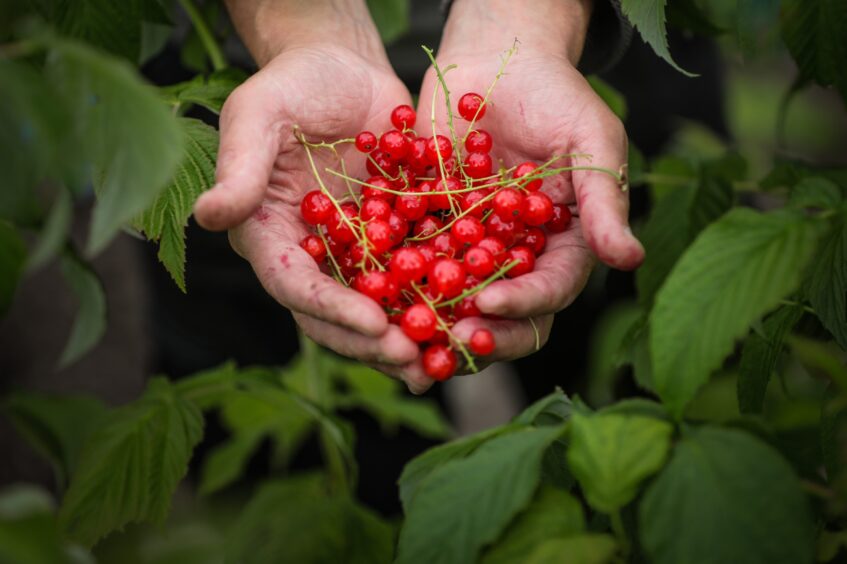
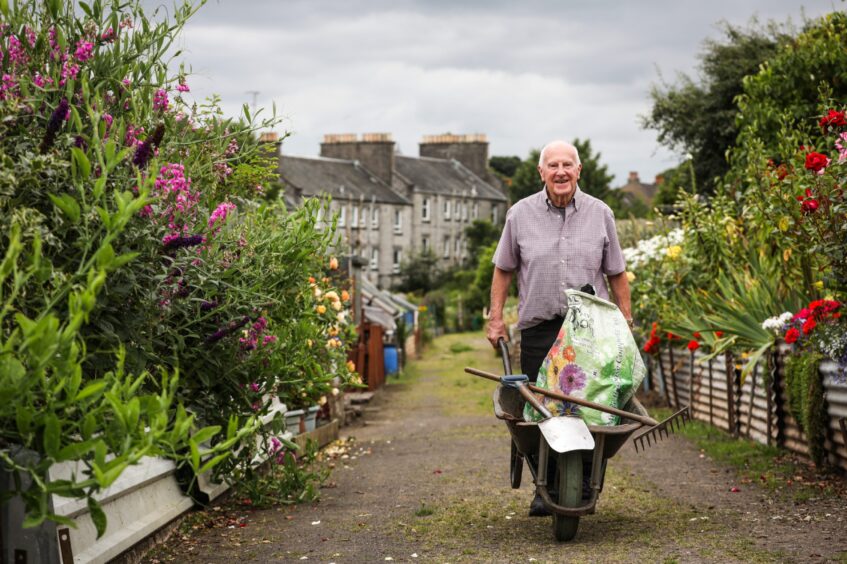
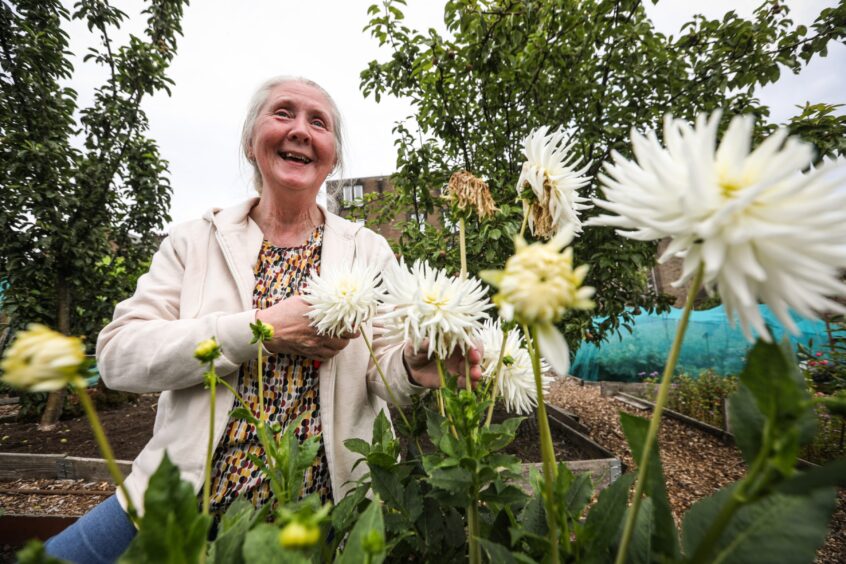
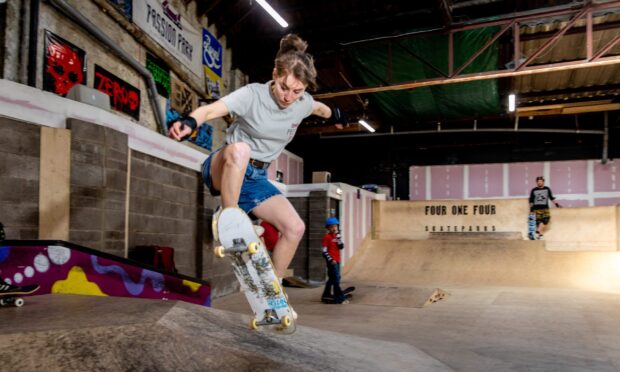

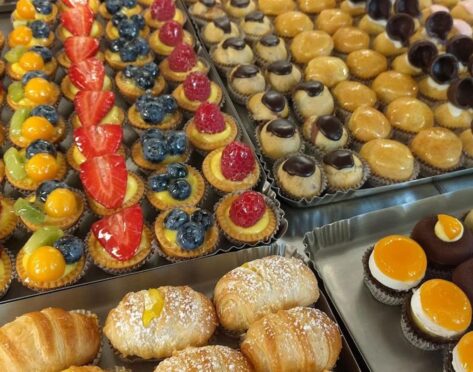

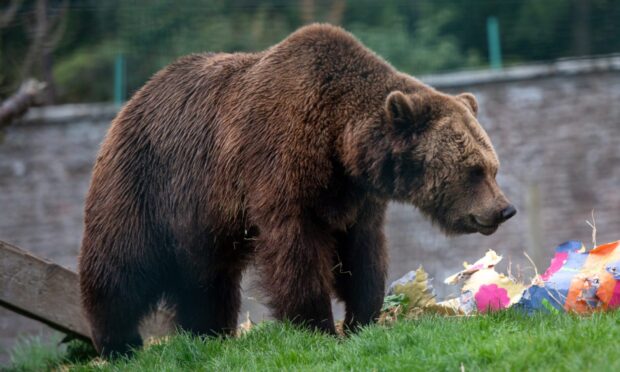
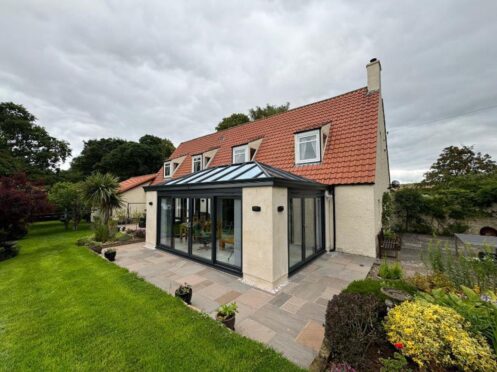
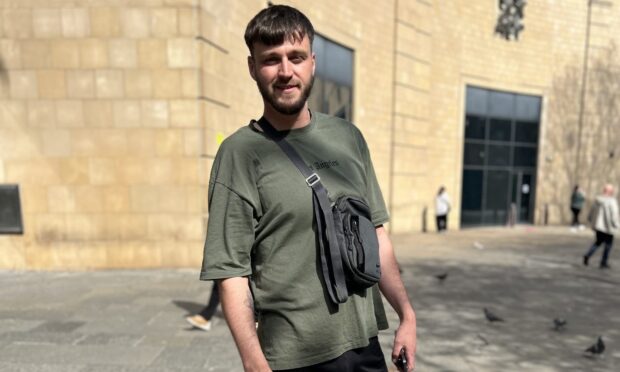

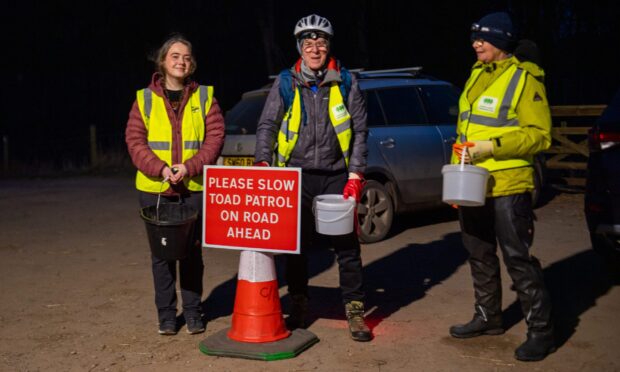

Conversation